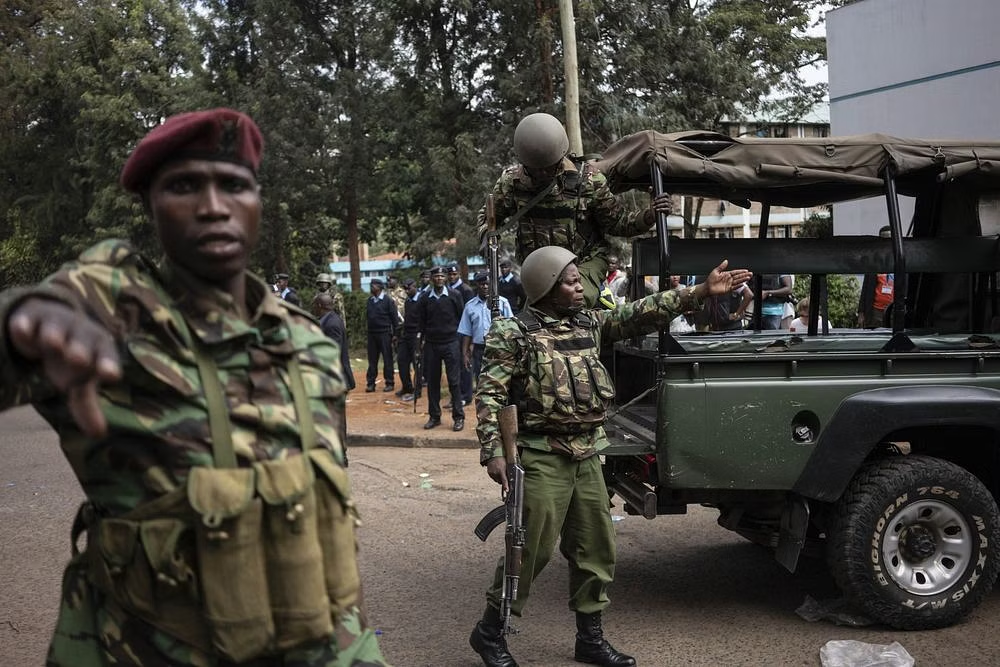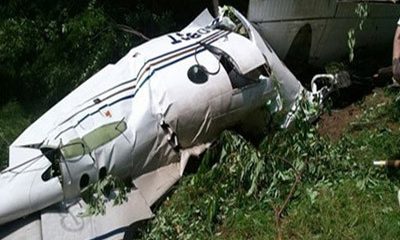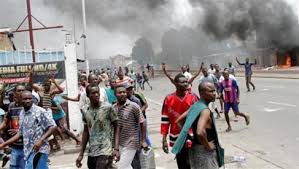NEWS
How Suicide bomber killed seven people at DR Congo bar
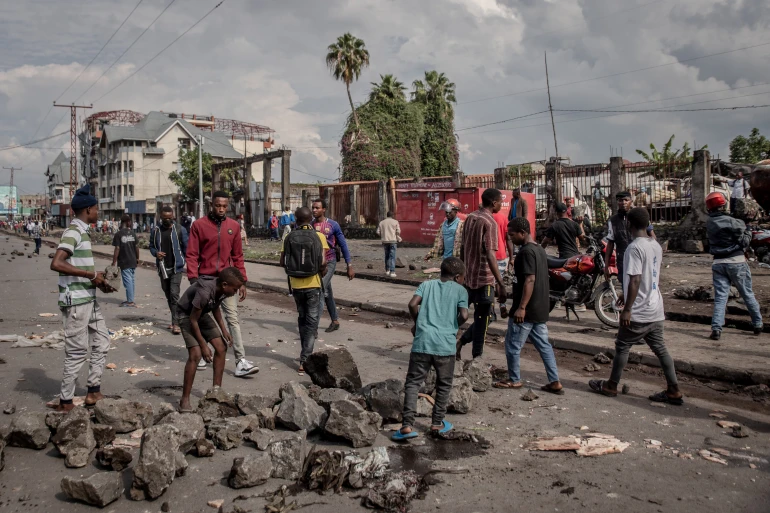
At least seven people have been killed by a suicide bomber at a crowded nightspot in the city of Beni in the eastern Democratic Republic of Congo Saturday, local officials reported.
The Democratic Republic of the Congo, also known as Congo-Kinshasa, DR Congo, the DRC, the DROC, or the Congo, and formerly Zaire, is a country in Central Africa. It is, by area, the largest country in sub-Saharan Africa, the second-largest in all of Africa, and the 11th-largest in the world.
Officials blamed the Allied Democratic Forces (ADF) militia, one of the deadliest armed groups in the region and claimed by the Islamic State group as its central Africa arm.
“The suicide bomber, prevented by security guards from entering a crowded bar, activated the bomb at the entrance of the bar,” the regional governor’s spokesman, General Ekenge Sylvain, said in a statement.
Six people died in the blast, and 14 were injured, including two local officials, he added.
Another 13 people were being treated for their wounds in hospitals, the statement added, describing the death toll as provisional.
Shortly after the blast, Narcisse Muteba, the colonel running the city during the state of emergency in the east of the country, had called on residents to return to their homes for their own safety.
An AFP correspondent saw the remains of three bodies at the site of the explosion, the In Box restaurant. The remains of tables, chairs, bottles and glasses were scattered across the blast site.
One city hall source told AFP that two children were among the dead, as well as two local officials.
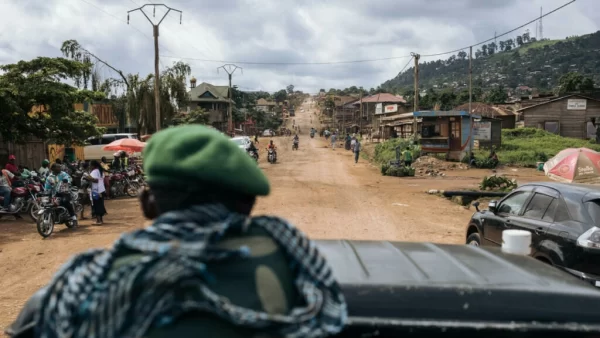
More than 30 people were celebrating Christmas there when the bomb went off, two witnesses told AFP.
“I was sitting there,” local radio presenter Nicolas Ekila told AFP. “There was a motorbike parked there. Suddenly the motorbike took off, then there was a deafening noise.”
A police vehicle took the wounded to a nearby medical centre, which was immediately sealed off.
On June 27 in Beni, a blast from a improvised bomb at a Catholic church wounded two women, the same day a man died when the bomb he was carrying went off.
The day before, another device blew up near a service station without doing any damage. The authorities blamed those attacks on the ADF.
Beni, in North Kivu province on the DRC’s eastern border with Uganda, has been the site of regular clashes between the army and the ADF.
North Kivu and neighbouring Ituri province have been under a “state of siege” since May, an emergency measure in which the military has taken effective control but which so far has not succeeded in stopping the attacks from the armed militia.
On November 30, the DRC and Uganda launched a joint operation against the ADF in the east of the country to try to quell the bloody ADF attacks. Uganda has also blamed the group for a string of attacks on its territory.
The ADF was historically a Ugandan rebel coalition whose biggest group comprised Muslims opposed to Ugandan President Yoweri Museveni.
But it established itself in eastern DRC in 1995, becoming the deadliest of scores of outlawed forces in the troubled region.
It has been blamed for the killings of thousands of civilians over the past decade in the DRC, as well as for bombings in the Ugandan capital Kampala.
The Islamic State group presents the ADF as its regional branch — the Islamic State Central Africa Province, or ISCAP.
On March 11 this year, the United States placed the ADF on its list of “terrorist groups” affiliated with IS jihadists.



